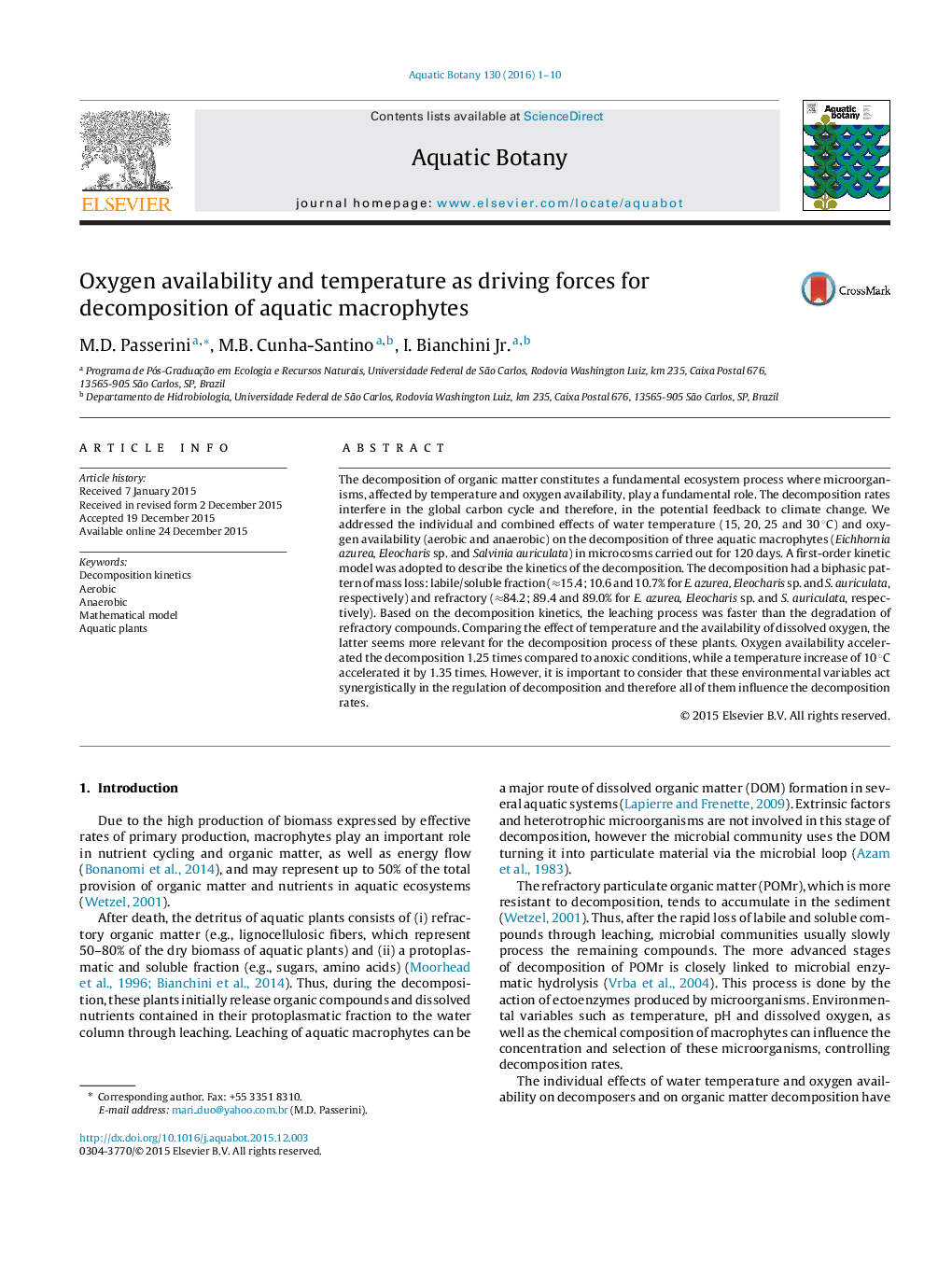| Article ID | Journal | Published Year | Pages | File Type |
|---|---|---|---|---|
| 4527604 | Aquatic Botany | 2016 | 10 Pages |
•We studied the decomposition of three aquatic macrophytes.•Mineralization yield were: Eleocharis sp. > Salvinia auriculata > Eicchornia azurea.•The recalcitrant fraction supports the main pathway of mineralization.•Temperature and dissolved oxygen (DO) affected the decomposition rates.•The DO is more effective than temperature for conducting decomposition.
The decomposition of organic matter constitutes a fundamental ecosystem process where microorganisms, affected by temperature and oxygen availability, play a fundamental role. The decomposition rates interfere in the global carbon cycle and therefore, in the potential feedback to climate change. We addressed the individual and combined effects of water temperature (15, 20, 25 and 30 °C) and oxygen availability (aerobic and anaerobic) on the decomposition of three aquatic macrophytes (Eichhornia azurea, Eleocharis sp. and Salvinia auriculata) in microcosms carried out for 120 days. A first-order kinetic model was adopted to describe the kinetics of the decomposition. The decomposition had a biphasic pattern of mass loss: labile/soluble fraction (≈15.4; 10.6 and 10.7% for E. azurea, Eleocharis sp. and S. auriculata, respectively) and refractory (≈84.2; 89.4 and 89.0% for E. azurea, Eleocharis sp. and S. auriculata, respectively). Based on the decomposition kinetics, the leaching process was faster than the degradation of refractory compounds. Comparing the effect of temperature and the availability of dissolved oxygen, the latter seems more relevant for the decomposition process of these plants. Oxygen availability accelerated the decomposition 1.25 times compared to anoxic conditions, while a temperature increase of 10 °C accelerated it by 1.35 times. However, it is important to consider that these environmental variables act synergistically in the regulation of decomposition and therefore all of them influence the decomposition rates.
